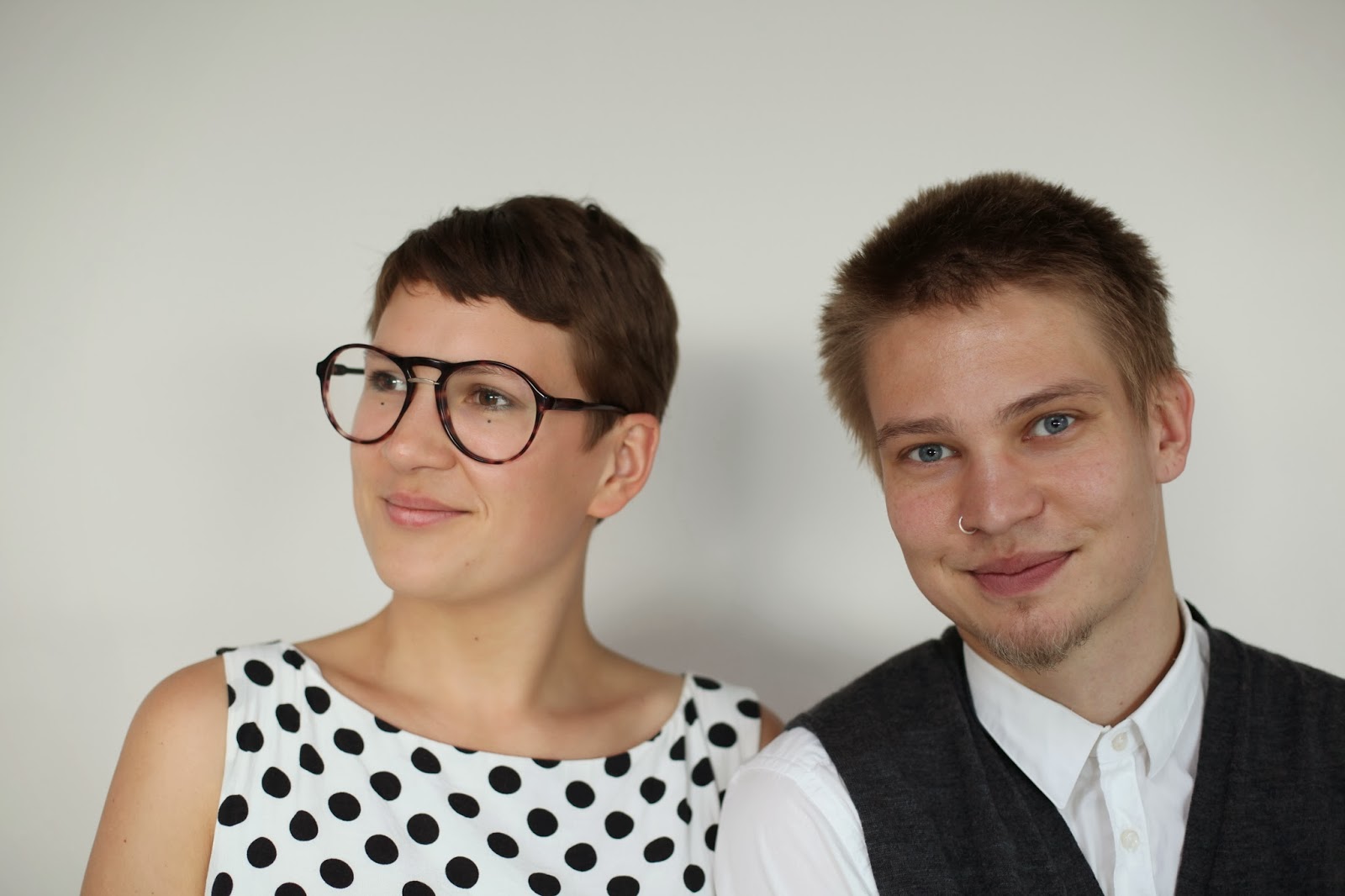It wasn’t the kind of scene one expected to come across on a chilly winter evening in Paris. Out in the open, on a cobblestone square near the Marais quarter, several people sat at a long wooden table - eating, drinking and talking animatedly.
Passers-by were invited
to sit and enjoy the delicious-smelling food, with the guests including a
former World Bank official, a well-dressed woman and her daughter, a market vendor,
a backpacker, an artist and a journalist.
 |
| Getting things ready in Paris. |
The duo, whose
chmara.rosinke company is based in Vienna, Austria, travel with their mobile-modular
kitchen and dining table to various cities and invite the public to share free meals.
Diners have included both the wealthy and the homeless.
Tasshon interviewed them about the project.
Tasshon: How did it
start?
Chmara: We were invited to an art and design fair in
Western Austria (ArtDesign Feldkirch), to make an ‘intervention’ in urban
space, as we are working between design and art, and the urban space medium interests us very much. We didn’t know this area where we had to do the
happening very well, so we decided to get to know the people from the area.
 |
| All folded up and ready to cook. |
Tasshon: What has the reaction been?
Chmara: The reactions have always been positive; in nearly
three years we haven’t had any negative experiences. Sure, sometimes the mix of
homeless and more wealthy people can lead to awkward situations, but it has
always worked out. People asked us where we would cook over the next days, and
they brought us wine, vegetables or homemade marmalade. We still have contact
with some guests and several have become friends. It was always difficult to
get the first person to sit at our table; once this happened, it didn’t take
long until the table was full.
Chmara: We were always cooking on our own, and sometimes in
galleries we had guest cooks. In Paris it was actually the first time that a
cook really worked with us. It has never been difficult to get some sponsorship
from an organic vegetable store or some private person or from companies or galleries,
because people liked the idea. Sometimes we also paid for the food on our own.
Tasshon: How many cities have been involved?
Chmara: Dornbirn, Feldkirch, Bregenz, Vienna (Austria) Vaduz
(Liechtenstein), Bratislava, Berlin, Milan, Paris, Lodz, Gdynia (Poland)… I for
sure have forgotten one or two, but I think this was the most. And if it works
out and we manage to organize sponsoring, we will go to New York in April and
May.
Tasshon: Do you have other projects as well?
Chmara: Currently we are working on a bar and restaurant for
Caritas (an organization that works with vulnerable people) in Vienna. Cooking
as a social phenomenon will also play a big role. Besides that, people with
social problems that come to Caritas will build together with us together and
learn to construct a big of the furniture we’re making.
 |
| Checking the ingredients in an earlier project. |
An important
aspect in our work is the relationship of people to the work they do with their
own hands, looking at the future, at energy problems. In general, we have to
develop craftsmanship and manufacturing more regionally and locally, but to
achieve this, our approach to design, to our work and craft has to change.
Besides that, we are working on many experimental projects that are not
client-based.
Tasshon: What has been the best aspect of the project for you personally?
Chmara: The reaction of homeless people has been very
nice. They said that normally there is a kind of soup kitchen at which you have
to wait half an hour, and you feel very exposed… nobody talks to you and the
food comes without any communication. So, many homeless people don’t go to the
soup kitchen as they also want to feel respected. They told us that it was a pleasure to sit at a
table together to eat, get to know new people and so on.
(Photos courtesy of the designers.)
(Photos courtesy of the designers.)

